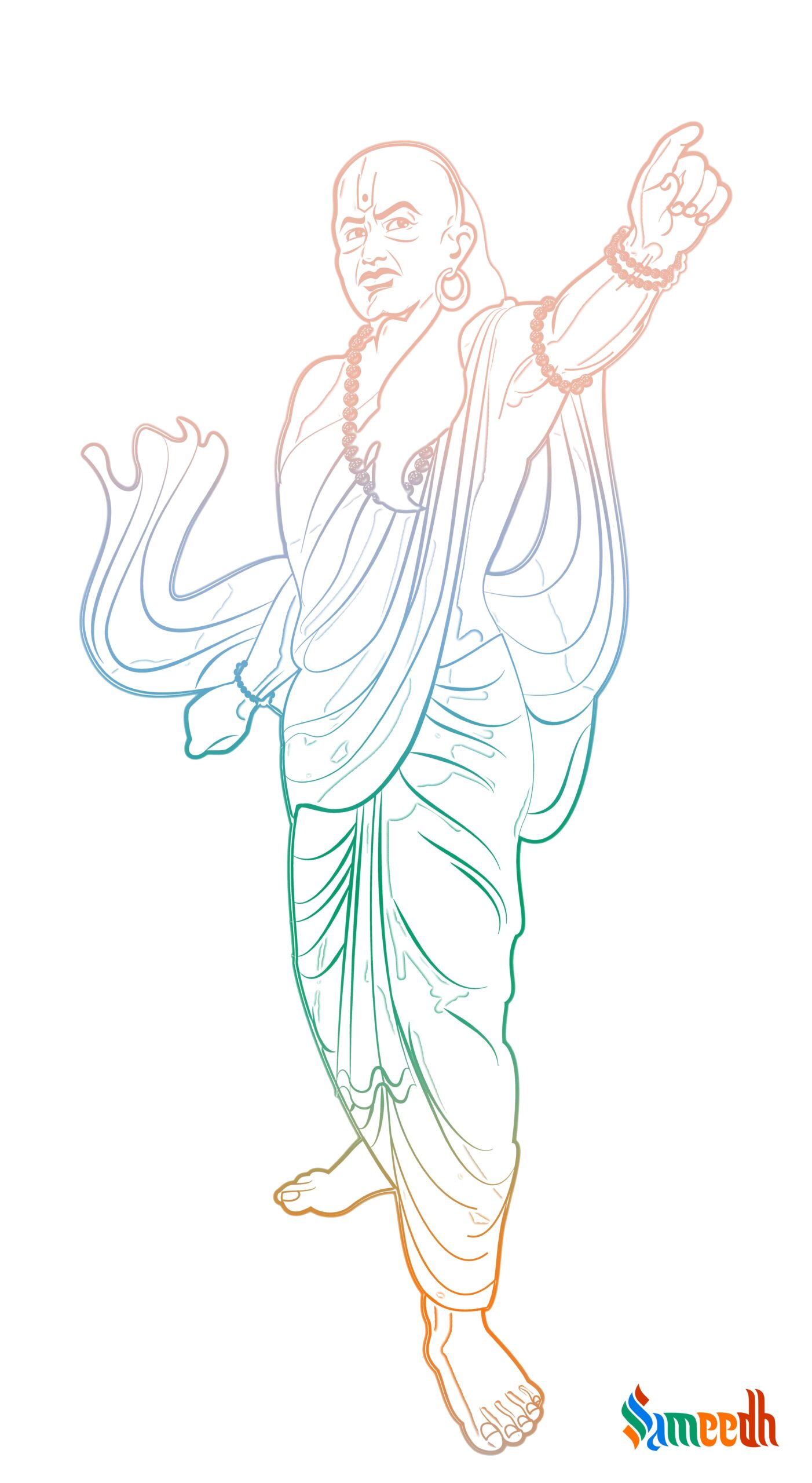Chanakya Niti is the widely admired handbook of socio-political strategy-making – that is still relevant in today’s time – created by the noted Indian thinker and scholar Chanakya.
What is Chanakya Niti?
Chanakya Niti is believed to be created by Indian scholar Chanakya between the 4th to 2nd century BCE. It is a compilation of ‘thumb rules’ or ‘policies (Niti)’ for socio-political progress, which are still relevant today. It is a great testament to the Indian schools of thinking and the Indian way of life in those times. Chanakya Niti is known for its practical take on various social situations and political strategies. It establishes a wide range of principles or aphorisms which are easy to understand.
There are about 585 verses divided into 17 chapters in Chanakya Niti.
Chapter 1: Always save your resources for emergency situations or difficulties. You should protect the women even at the loss of resources but protect yourself before anything else.
Chapter 2: Never speak-out loud about your thoughtful plans and strategies. Rather you should deliberate on them in your mind and protect them behind silence, while making them a reality.
Chapter 3: The divinity bestows riches on the place where – idiots are not worshipped, grains & resources are stockpiled, and married couples don’t quarrel too often.
Chapter 4: Leave the responsibility that doesn’t have compassion and love. Also, leave and stay away from women, relatives, and friends who do not have love in their hearts.
Chapter 5: Wealth helps protect the faith, yoga helps protect knowledge, pleasantness helps protect the king, and virtuous women help protect the home.
Chapter 6: A smart person should get hold of his senses and wait for the right time to fulfil own objectives, just like cranes. You should have patience to wait till the target comes walking to you.
Chapter 7: Life of a person who hasn’t attained knowledge, is more like the tail of a dog. It can neither use that to protect its dignity nor it can use it to shoo away the insects that bite it.
Chapter 8: The water that comes out of the ground is pure, the woman that is faithful to her husband is pure, the king who cares for people’s welfare is pure, and the ascetic brahmin is pure.
Chapter 9: A brahmin who studies scriptures with the objective to earn more money through it; and the one who eats food from bad people – end up being a failure like a non-venomous snake.
Chapter 10: Luck or the god’s grace is real, and it prevails. A beggar can become a king in just some moments, and a king might end up losing everything because of it.
Chapter 11: The one who tries to spoil someone’s work, keeps pursuing own selfish goals, cheats others, holds a grudge for others – who looks harmless but is dangerous from inside – is just like a cat.
Chapter 12: Smart people should not waste time on thinking about just getting a meal. They should devote their time for bigger responsibilities because with their birth itself, the food is guaranteed.
Chapter 13: The way a calf only goes back to its mother and follows her amongst thousands of other cows, Karma keeps walking behind and following the one who does Karma.
Chapter 14: People look at the same thing from three different points of views. A yogi sees it as a condemned dead body, a pervert sees it as a beautiful woman, and a dog sees it as a piece of meat.
Chapter 15: The wealth earned from unjust means stays with any person for a maximum of ten years. And at the onset of eleventh year, everything gets destroyed – the principal amount & interest.
Chapter 16: Samsara is a distasteful tree, but it’s a surprise that it bears two fruits that are sweet like nectar and enhances life – first, a soothing talk and second, the company of good people.
Chapter 17: If you have attained a house with a lovely and faithful wife, good resources, a polite son, and a few grand-children – there is no better reward than that even in heaven.
